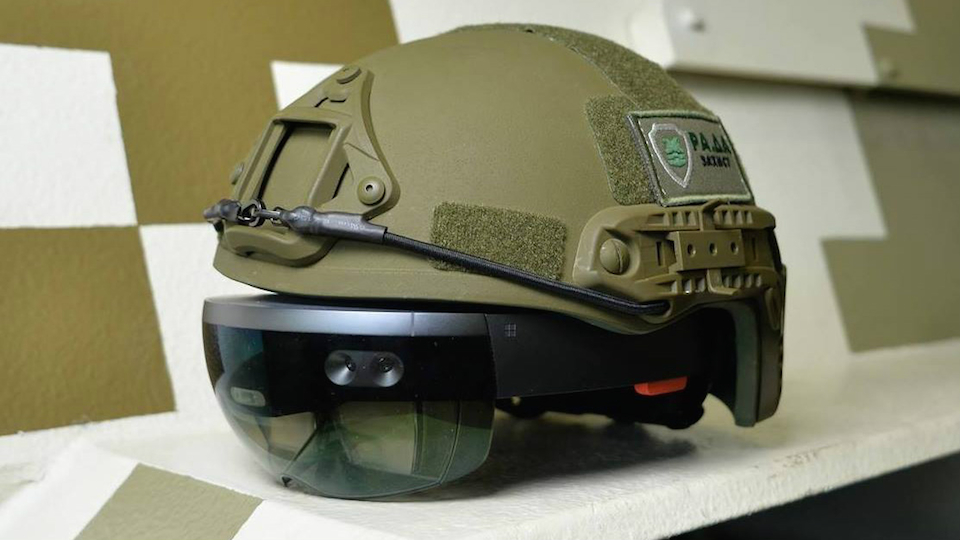Microsoft's HoloLens will be used in US Army combat missions
Up to 100,000 headsets will soon be atop troops’ heads

Microsoft’s HoloLens has seen countless applications in the professional world, from construction to general contracting and beyond, but now it will enter the next theater of war.
The US Department of Defense (DoD) has awarded Microsoft with a $480 million contract to produce up to 100,000 HoloLens headsets for infantry use in combat missions, Bloomberg reports. The news comes amid the wide use of HoloLens in military training for some time now.
US military officials clearly like what they’ve seen, and they’re now ready to deploy augmented reality (AR) tech in live combat missions. Specifically, the contract will see Microsoft provide the US Army with prototype HoloLens devices that can “increase lethality by enhancing the ability to detect, decide and engage before the enemy,” a government description of the program reads.
To be exact, the US military expects HoloLens headsets developed for combat use to include night vision and thermal sensors, as well as the ability to measure troops’ vital signs like breathing and “readiness,” scan for concussions and offer ear protection, Bloomberg reports.
These specifications came through in a document sent to companies bidding for the contract, which included Magic Leap among staples like Lockheed Martin and Raytheon.
This is a major step forward in the role of HoloLens – and AR on the whole – in military applications. It’s also a sizable commercial contract, making the US military one of the platform’s biggest supporters so far.
Microsoft’s modus operandi gets murkier
While this is far from the first time Microsoft has allied with the militaries of the world – the UK’s Trident missile system running on a form of Windows XP software immediately comes to mind – the company’s employees have grown increasingly unhappy with moves like it.
Sign up for breaking news, reviews, opinion, top tech deals, and more.
Earlier this year, Microsoft employees gathered online to protest the company’s entertaining a contract with the US DoD’s Joint Enterprise Defense Infrastructure, or JEDI, project, including some of its artificial intelligence software. "Many Microsoft employees don't believe that what we build should be used for waging war," they wrote in a blog post on Medium.
It’s safe to say that Microsoft isn’t going to about face any time soon.
The company responded at the time with word that employees could request to be shifted to other projects within the company if the associations of the work made them uncomfortable. In response to this HoloLens contract, Microsoft had this to say to Bloomberg:
"Augmented reality technology will provide troops with more and better information to make decisions. This new work extends our longstanding, trusted relationship with the Department of Defense to this new area,” a Microsoft spokesman said to Bloomberg via email.
So, again, this isn’t at all a new direction for Microsoft, but given the climate around technology companies accepting government contracts – especially those from the military wing – this move will only continue to inspire more questions and scrutiny. That is, especially regarding the roles these companies play in our global discourse.

Joe Osborne is the Senior Technology Editor at Insider Inc. His role is to leads the technology coverage team for the Business Insider Shopping team, facilitating expert reviews, comprehensive buying guides, snap deals news and more. Previously, Joe was TechRadar's US computing editor, leading reviews of everything from gaming PCs to internal components and accessories. In his spare time, Joe is a renowned Dungeons and Dragons dungeon master – and arguably the nicest man in tech.